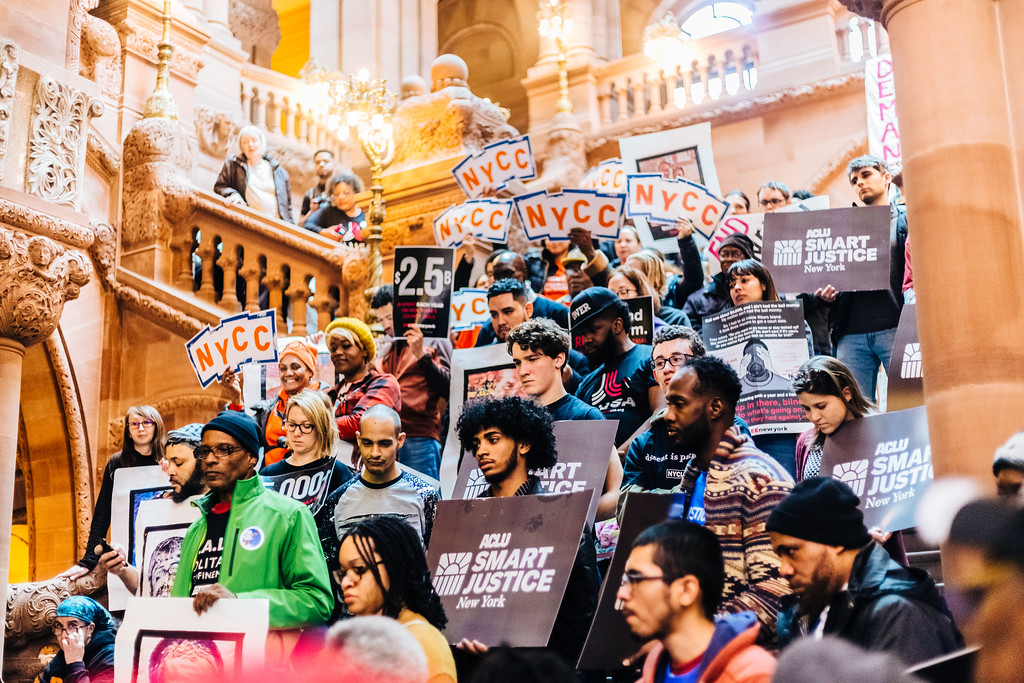Column: Constitutional Limits on Congressional Investigations Into Palestine-Israel Advocacy
Civil Liberties Union

In January, the City of New York reached a $3.3 million settlement with the family of Kalief Browder. Browder tragically ended his life in 2015 after suffering beatings, two years of solitary confinement, and egregious conditions during the three years he was incarcerated on Rikers Island—all because of a baseless accusation that he stole a backpack.
After the arrest, it took three years for the court to discover that the prosecution had no evidence connecting Browder to the alleged robbery. Following his release, many people close to Browder reported that he continued to struggle with the trauma and torture he faced while in jail, which ultimately led to his suicide.
His family rightly sought justice and sued the city for wrongful death and constitutional violations. They deserve every bit of the settlement and more. But if city officials think that they can address systemic injustices by responding to aggrieved families after the fact with individual settlements, they are categorically wrong. The public deserves more. Now the question that lingers is: How will New York end the systemic practices that led to Browder’s death?
After Browder’s experience was publicized, the city banned solitary confinement for individuals younger than 21 and committed itself to closing Rikers. The state passed Raise the Age legislation which sought to treat 16 and 17 year-olds like children by raising the age of criminal responsibility from 16 to 18. These were steps in the right direction.
But the reality is that what happened to Browder implicated a host of far-reaching, interconnecting, systemic injustices that continue to pervade the way courts treat people accused of crimes today. As author Ta-Nehisi Coates described in his eulogy of Browder, “the senseless destruction of this individual must necessarily be laid at the feet of the citizens of New York, because it was done by our servants, and it was done in our name.” We still have a long way to go to account for the role our laws, as well as policing, correctional, prosecutorial, and judicial policies played in Browder’s death.
What is clear, though, is that stripped of his liberty at the age of 16, Browder was fighting a deeply flawed pretrial system that presumed he was guilty from the outset. And this system continues to grind forward, leaving most New Yorkers two options when they are accused of a crime: pay bail or plead guilty.
Browder’s story is one we should never forget.
Ensuring that tragedies like what happened to Browder do not happen again requires a transformative change that addresses the reason Browder ended up in jail in the first place. New York desperately needs to overhaul its bail, discovery, and speedy trial practices.
Browder was initially assigned a $3,000 bail—which neither he nor his family could afford. Then a judge ordered him ineligible for bail because he was on probation at the time of his arrest. Even though he was unable to see the evidence—or lack thereof—in his case, Browder was repeatedly asked to plead guilty and forfeit his rights to trial. He refused. It took 31 appearances in front of eight different judges until the prosecution revealed that they had no case against him.
Browder’s plight underscores the deep unfairness of New York’s current pretrial laws. He chose an option that is untenable: spend years in jail fighting for his innocence. State lawmakers have a real opportunity to pass bail reform that ensures that pretrial detention is not the default option for people accused of crimes.
We also need discovery reform that gives defendants early and complete access to the evidence against them, so they can make informed decisions about their case. And we need speedy trial reform that gives people accused of a crime a firm trial date – a date they can rely on within a reasonable time frame and one that will not be dictated by prosecutors or by a crowded court calendar.
Mayor Bill de Blasio and Governor Andrew Cuomo both claim to be inspired by Browder’s story and have acknowledged the need for bail, discovery, and speedy trial reform. But as always, the devil is in the details. As lawmakers negotiate over legislation to address these three pretrial laws, they should use the lessons of Browder’s tragedy as a guide for what changes are needed.
Lawmakers cannot simply contemplate solutions that would make a pretrial system fairer for some. To ensure that the presumption of innocence is realized for all– everyone accused of a crime – it’s not enough to reform this system only for nonviolent offenses or misdemeanors.
To the public, Browder was known to have been accused of stealing a backpack, but in the eyes of the law, he was accused of a violent felony offense. To suggest that those accused of violent felony offenses deserve less due process and less ability to exercise their rights is based on a presumption of guilt. Our values – and our constitution – demand more.
Browder’s story is one we should never forget. He was initially held on a bail he could not afford, blindfolded from seeing the government’s evidence against him, and spent years in jail without being convicted of a crime.
His case illustrates that the fundamental fight for innocence in New York can be an irreparably harmful one. To honor the life of Kalief Browder, we need to act fast or else we allow the countless other Browder’s trapped in the system today to remain ignored.